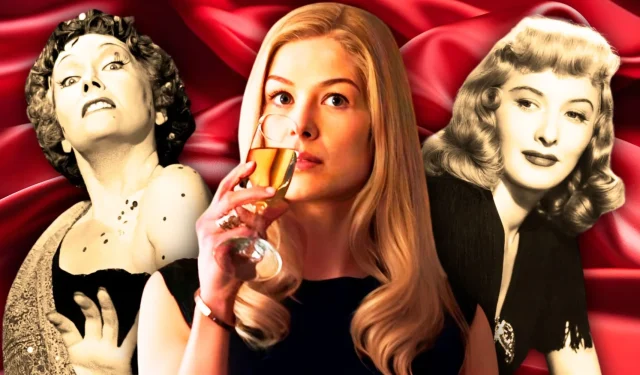
There’s a notable French adage, “cherchez la femme,”which translates as “look for the woman.”This phrase has become almost a cliché within the realm of film noir, suggesting that numerous conflicts stem from a female character, often depicted as a femme fatale. However, while this saying has been wielded in a misogynistic light throughout history, the portrayal of women in film noir has significantly evolved. Today’s audiences often find themselves captivated by the complexity and depth of these female characters, rooting for them even if their actions spell disaster for the male protagonist. After all, these plots thrive on tension and moral ambiguity.
The landscape of film noir is populated by femme fatales who defy traditional villain stereotypes. These characters are often clever, manipulative, and deeply ambitious. Occasionally, their treacherous actions arise from circumstances beyond their control. Some may leverage their sexuality, while others wield coercion and deception as their weapons. Regardless of the method, what makes these femme fatales unforgettable is their relentless pursuit of their desires, often leading them to a place of regret.
10
Natalie (Carrie Anne-Moss) In Memento
Bartender Natalie Exploits Leonard’s Memory For Her Own Ends
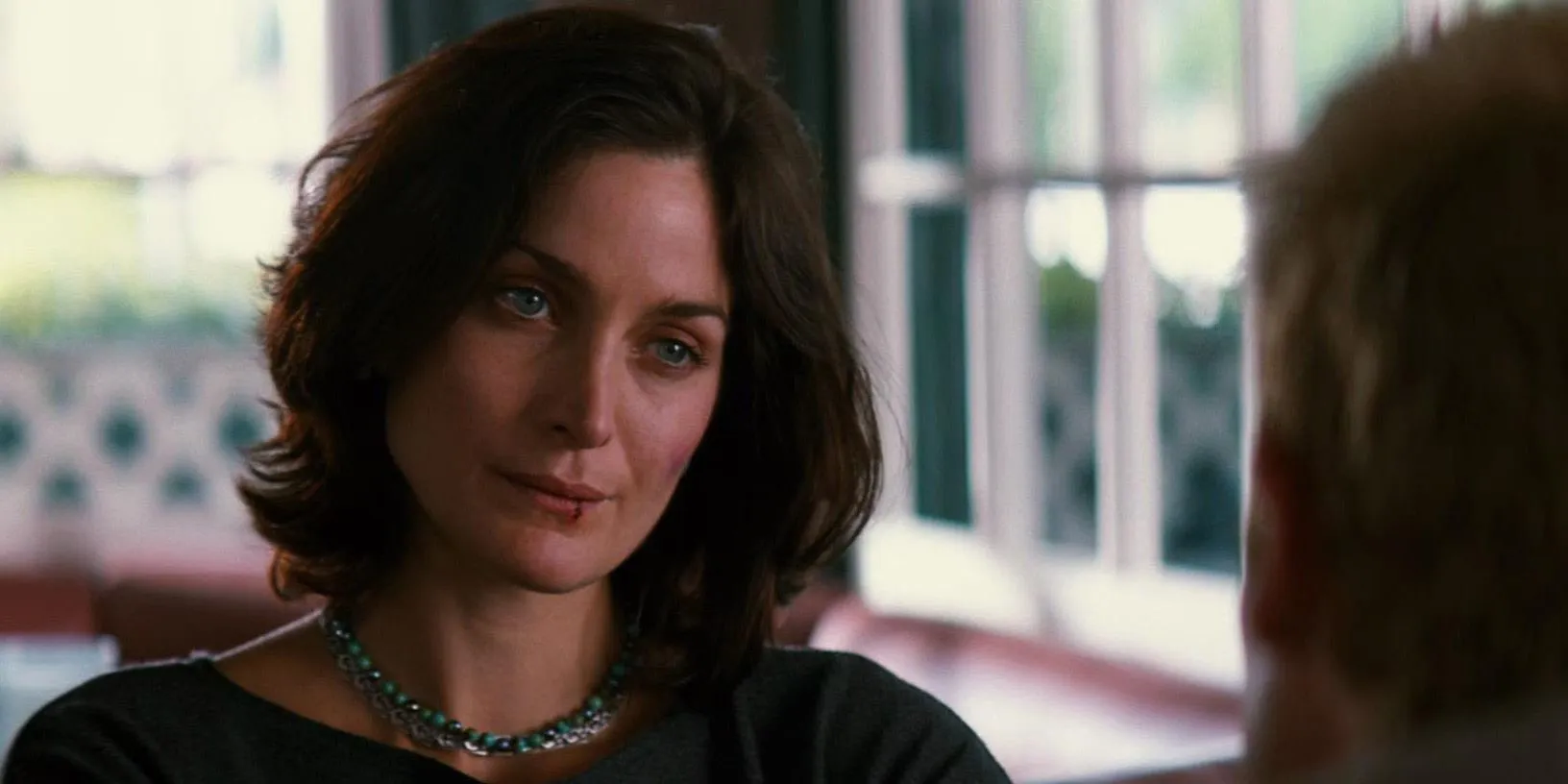
Before tackling The Dark Knight trilogy, Christopher Nolan penned and directed the groundbreaking mystery thriller Memento, a story told in reverse. Central to the plot is Leonard (played by Guy Pearce), a man burdened by a rare short-term memory condition. While this film may not adhere strictly to traditional film noir aesthetics, it undoubtedly features a standout femme fatale in Carrie Anne-Moss’ Natalie.
As Leonard embarks on a quest for vengeance against the killer of his wife, he encounters Natalie, a bartender who claims she wants to assist him. However, the truth is steadily revealed: she is capitalizing on the fact that Leonard inadvertently killed her drug dealer boyfriend—a detail he has no recollection of. Through manipulation, Natalie uses Leonard as a pawn in her dangerous games, exploiting his memory loss to orchestrate her plans without his awareness. Her calculated actions paint her as a quintessential femme fatale, ingeniously maneuvering through Leonard’s foggy reality for her own sinister intentions.
9
Dorothy Valens (Isabella Rossellini) In Blue Velvet
A Nightclub Singer Who Draws a Young Man Into Her Dark World
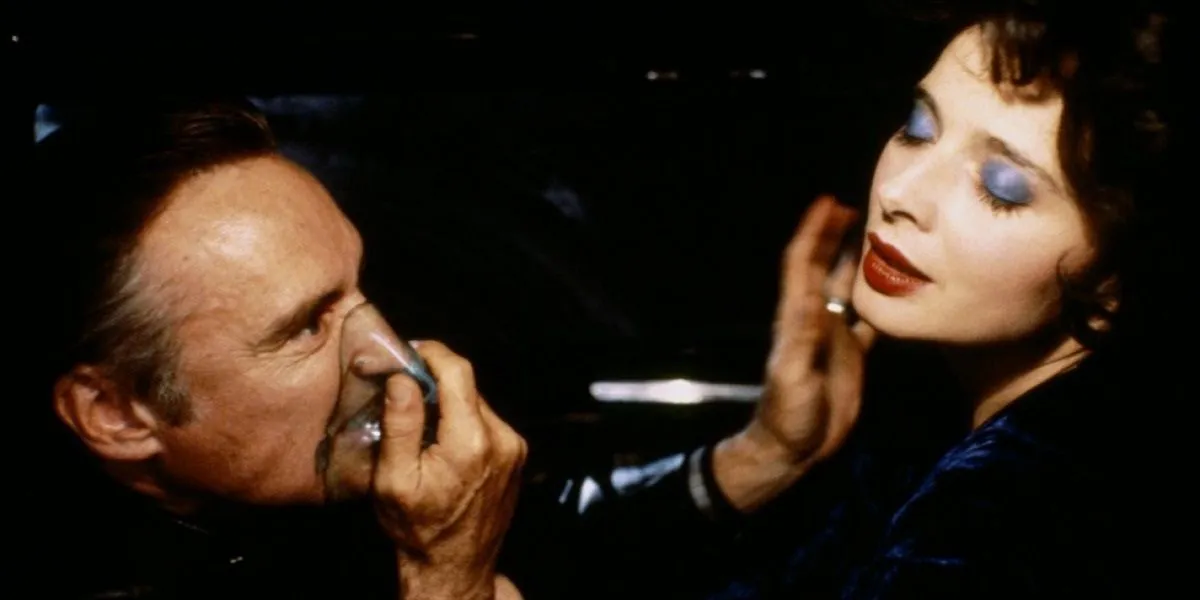
David Lynch’s Blue Velvet is a psychological thriller that solidified his status in Hollywood. When college student Jeffrey Beaumont (Kyle MacLachlan) returns home, he is immersed in the unsettling life of nightclub singer Dorothy Valens (Isabella Rossellini). As Jeffrey’s infatuation deepens, he is lured into Dorothy’s tumultuous existence, which intertwines themes of violence and seduction.
Although Dorothy does not commit murder, she plays a significant role in eroding Jeffrey’s innocence. Her experiences with the psychopathic Frank Booth (Dennis Hopper) leave her deeply scarred, ensnaring Jeffrey in a dangerous web of manipulation and intrigue. Dorothy’s complexity and seductive vulnerability establish her as a memorable femme fatale in cinema history.
8
Gilda (Rita Hayworth) In Gilda
The Gangster’s Wife With a Memorable Hair Flip
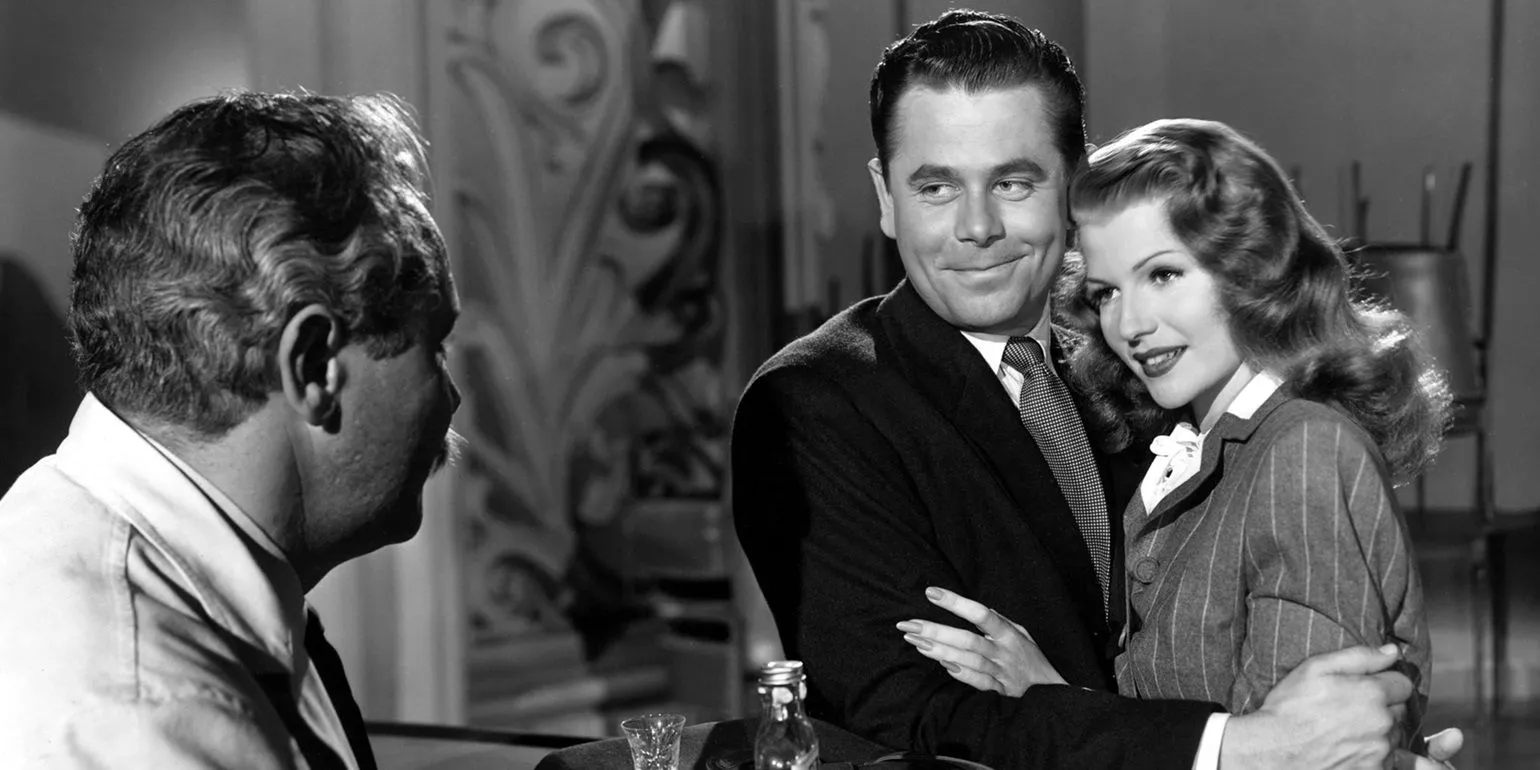
Rita Hayworth’s portrayal in the 1946 film Gilda resonates with those who haven’t even seen the movie, solidifying her legacy in film noir. Johnny Farrell (Glenne Ford), a crooked gambler, is drawn into a love affair with Gilda, the femme fatale wife of mobster Ballin Mundson (George Macready).
With her iconic hair flip and captivating rendition of “Put the Blame on Mame,” Gilda embodies charisma and danger. She effortlessly draws Johnny back to her, even as their tumultuous history complicates their interactions. Gilda’s manipulative nature paired with her beauty makes her a quintessential femme fatale, eliciting both attraction and peril in equal measure.
7
Violet & Corky (Jennifer Tilly & Gina Gershon) In Bound
Lovers Conspiring to Steal a Gangster’s Fortune
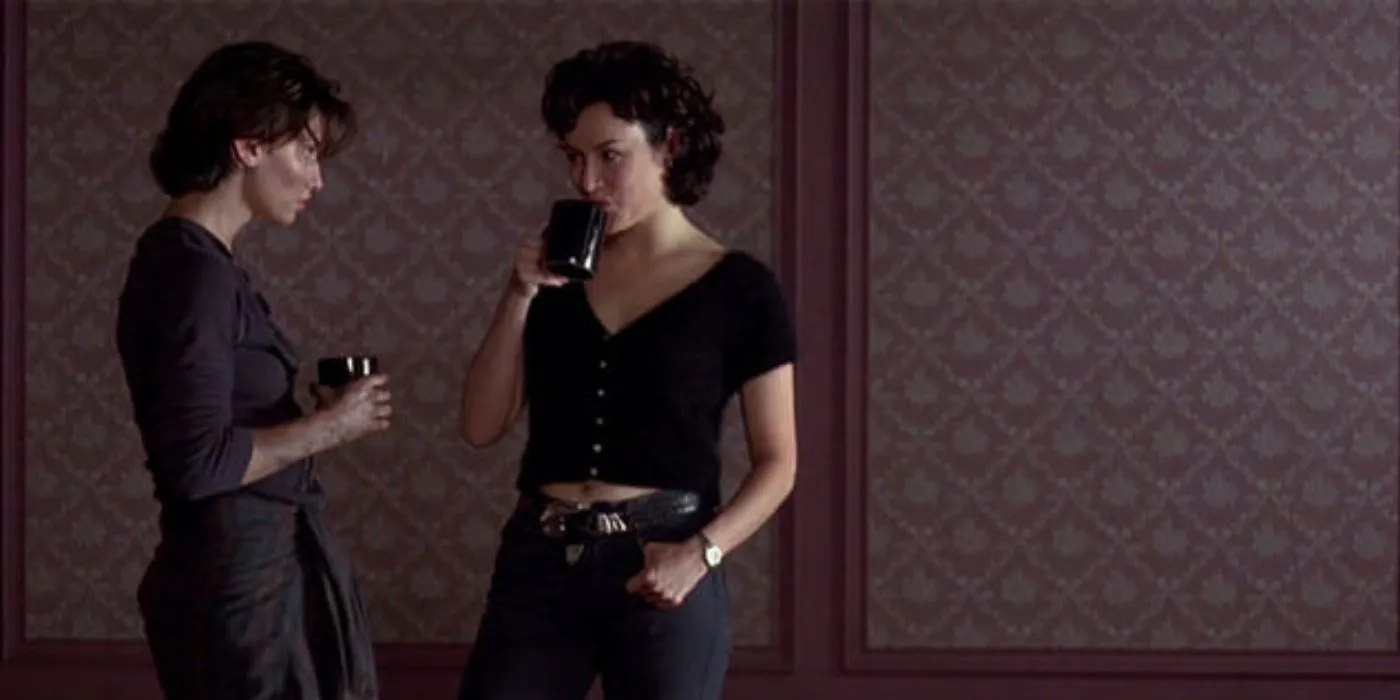
In their feature debut, the Wachowskis crafted Bound, an erotic neo-noir film starring Jennifer Tilly as Violet, the mobster’s girlfriend, and Gina Gershon as Corky, her ex-con lover. The two women devise a plan to pilfer Caesar’s—Violet’s dangerous boyfriend—ill-gotten gains. Yet, their scheme quickly spirals out of control, forcing them to fight for their survival.
The chemistry between Tilly and Gershon is electric, but it’s their depiction of a lesbian relationship that stands out. The Wachowskis brought in feminist expert Susie Bright to enhance the authenticity of the love scenes, which ultimately portrays Corky and Violet as both capable femme fatales and empowering female protagonists for viewers to champion.
6
Brigid O’Shaughnessy (Mary Astor) In The Maltese Falcon
Sam Spade Ensnared by This Legendary Femme Fatale
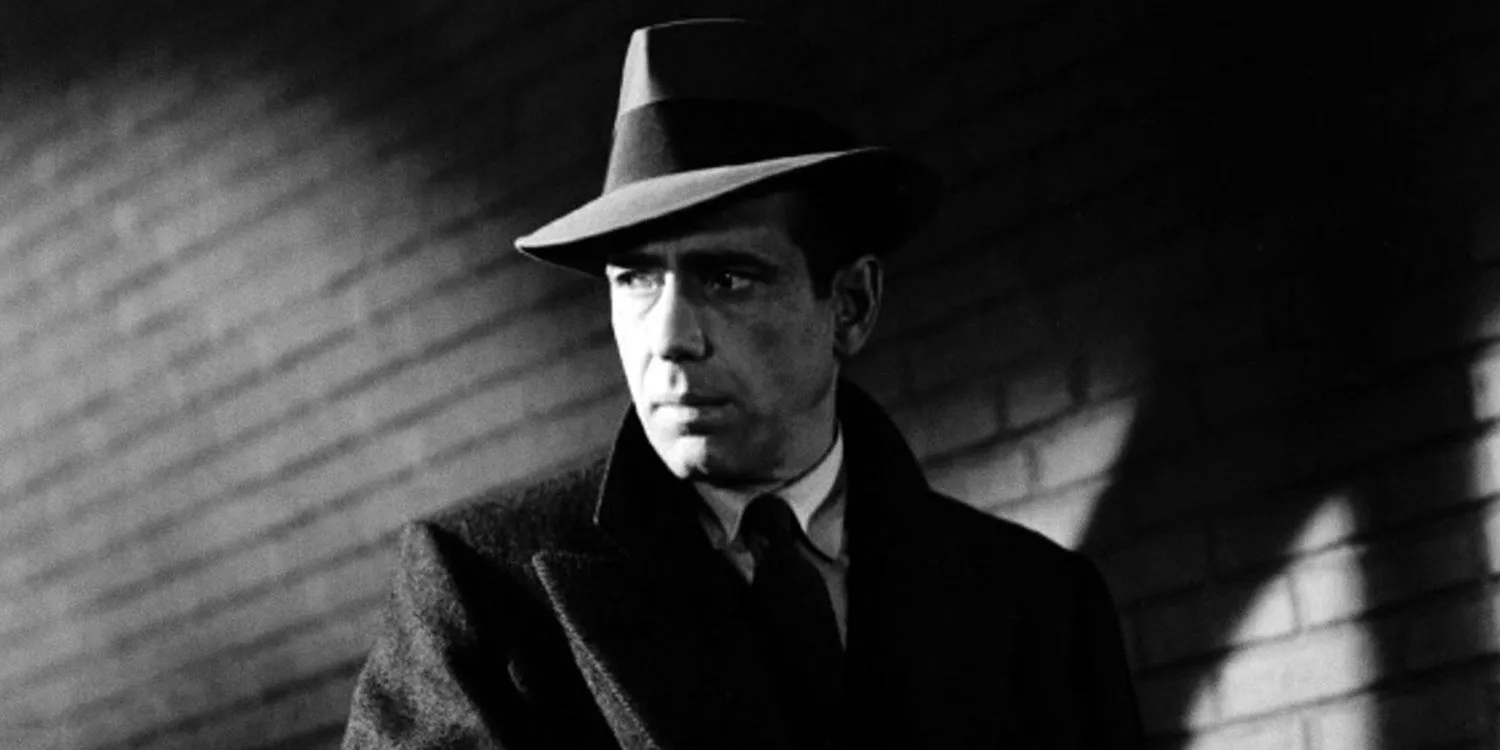
From her entrance into Sam Spade’s office, Brigid O’Shaughnessy (Mary Astor) showcases her enigmatic allure. Sam (Humphrey Bogart) is all too aware that her facade is likely misleading. Brigid plays the damsel in distress convincingly, yet her lies are ever-present. Regardless of his instincts, Sam finds himself drawn to her.
Brigid’s manipulation is so compelling that it blindsides Sam, especially as he wrestles with the reality that she has a hand in the death of his partner. The Maltese Falcon remains a defining film noir that captures Brigid’s ability to beguile and betray—leaving readers questioning her genuine affections.
5
Mrs. Danvers (Judith Anderson) In Rebecca
Danvers: The Obsession to Avenger the Late Rebecca
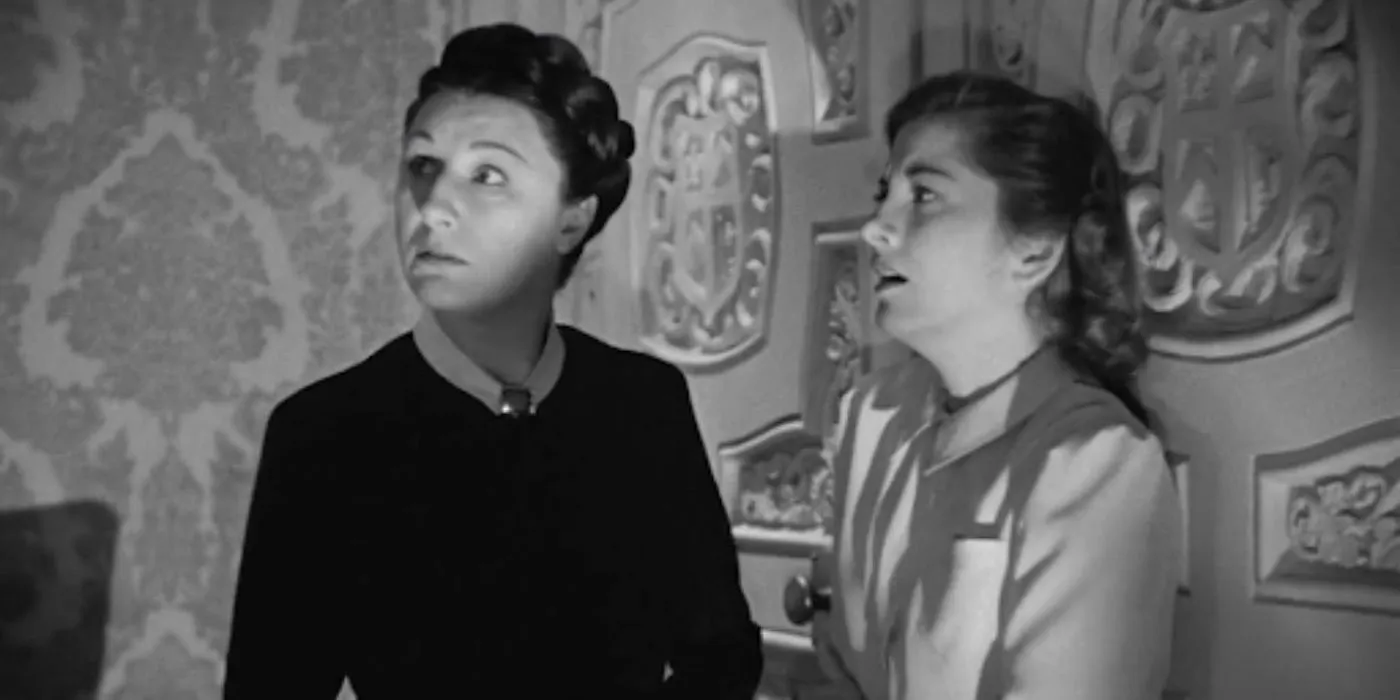
Alfred Hitchcock’s captivating adaptation of Daphne du Maurier’s Rebecca illustrates the masterful interplay of suspense and psychological manipulation. When aristocrat Maxim de Winter (Laurence Olivier) introduces his young bride (Joan Fontaine), Mrs. Danvers, the housekeeper, is determined to thwart her at every turn. Desperate to uphold Rebecca’s legacy, Mrs. Danvers undermines the new bride at each chance, asserting that Rebecca was superior in every way.
Rather than relying on sexual allure, Mrs. Danvers embodies a different type of femme fatale. Her obsession with Rebecca converts her into a manipulative force, leading her to the brink of madness as she seeks to sabotage the couple’s happiness. Her twisted loyalty culminates in a chilling pursuit of vengeance, making her character unforgettable within the film noir genre.
4
Catherine Tramell (Sharon Stone) In Basic Instinct
Catherine: The Seductive Enigma Who Claims Innocence
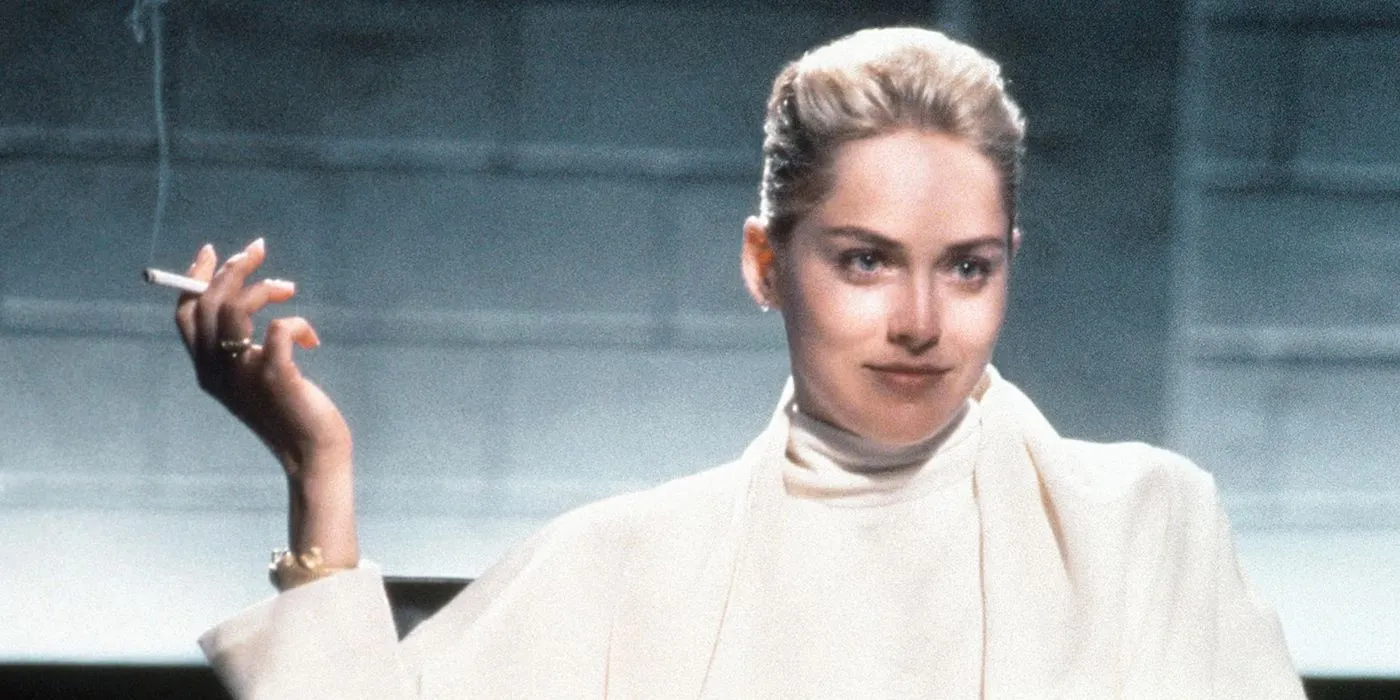
Lauded as a neo-noir masterpiece, the 1992 film Basic Instinct incited debates surrounding themes of sexuality and morality. While investigating a rock star’s murder, detective Nick Curran (Michael Douglas) becomes enraptured by novelist Catherine Tramell, portrayed by Sharon Stone. Initially suspected in the murder, Catherine’s charisma and allure keep Nick entranced, despite substantial evidence suggesting her involvement.
Sharon Stone’s portrayal of Catherine is indelible; she embodies a powerful woman unapologetically expressing her sexuality. As the narrative unfolds, Nick is drawn into a thrilling yet dangerous entanglement, culminating in a chilling twist that reveals Catherine’s true intentions as she cleverly orchestrates events to ensnare Nick, leaving audiences spellbound.
3
Norma Desmond (Gloria Swanson) In Sunset Boulevard
A Former Starlet Desperate to Reclaim Her Glory
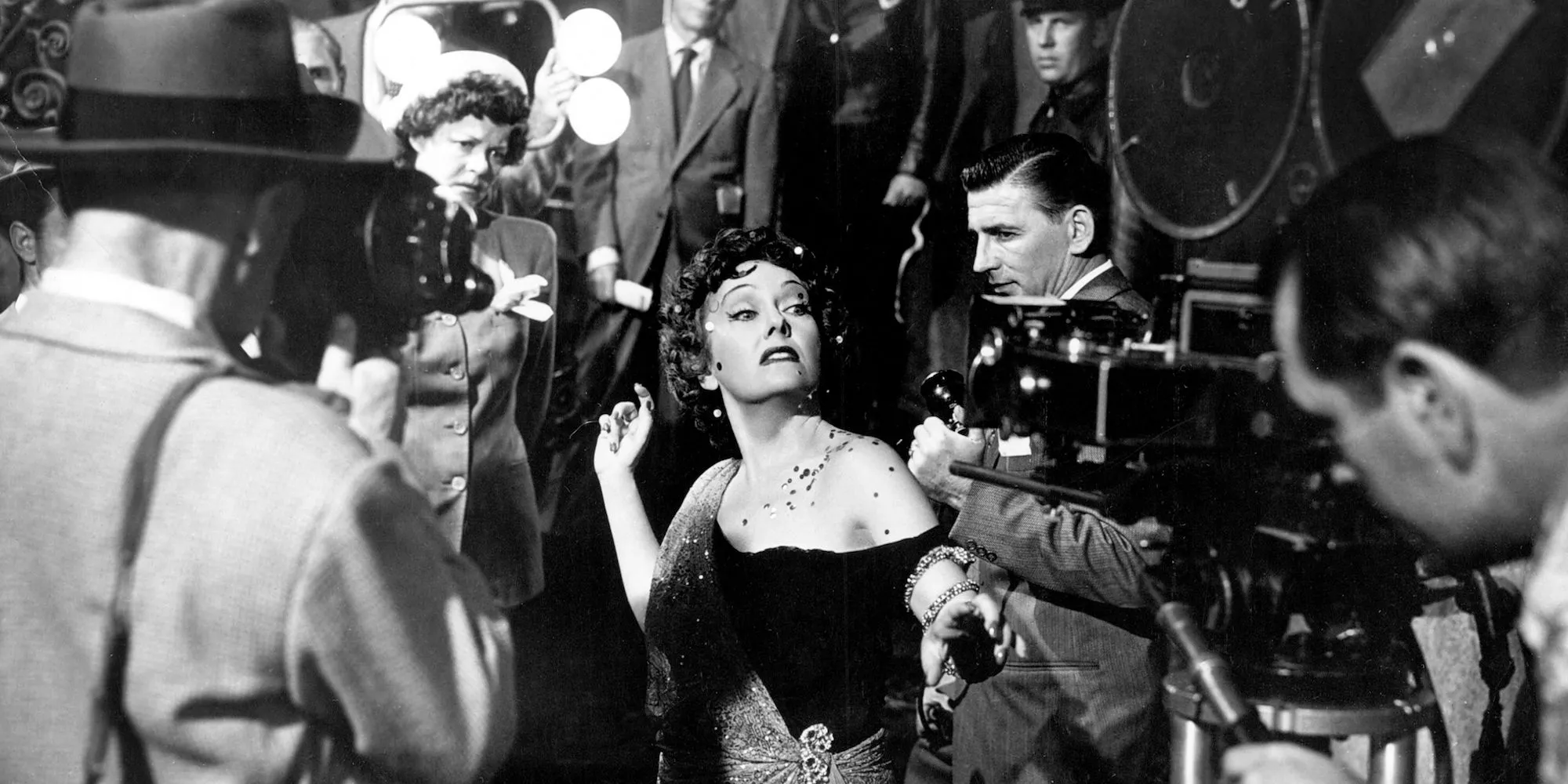
Sunset Boulevard presents Joe Gillis (William Holden), an ambitious screenwriter who becomes entangled with former silent film star Norma Desmond (Gloria Swanson). Shunned by the industry, Norma seeks out Joe, hoping to restore her past fame at any cost. Her desperation unleashes a series of events that lead to tragic and irreversible consequences.
Swanson’s unforgettable performance won her an Oscar nomination for Best Actress. Her character represents the haunting specter of lost fame, portraying how the lust for relevance can twist into inner turmoil. In the gripping climax, when her true madness is revealed, Norma’s chilling proclamation to the camera seals her fate as one of cinema’s most iconic femme fatales.
2
Phyllis Dietrichson (Barbara Stanwyck) In Double Indemnity
The Femme Fatale Who Lures an Innocent Victim Into Her Web
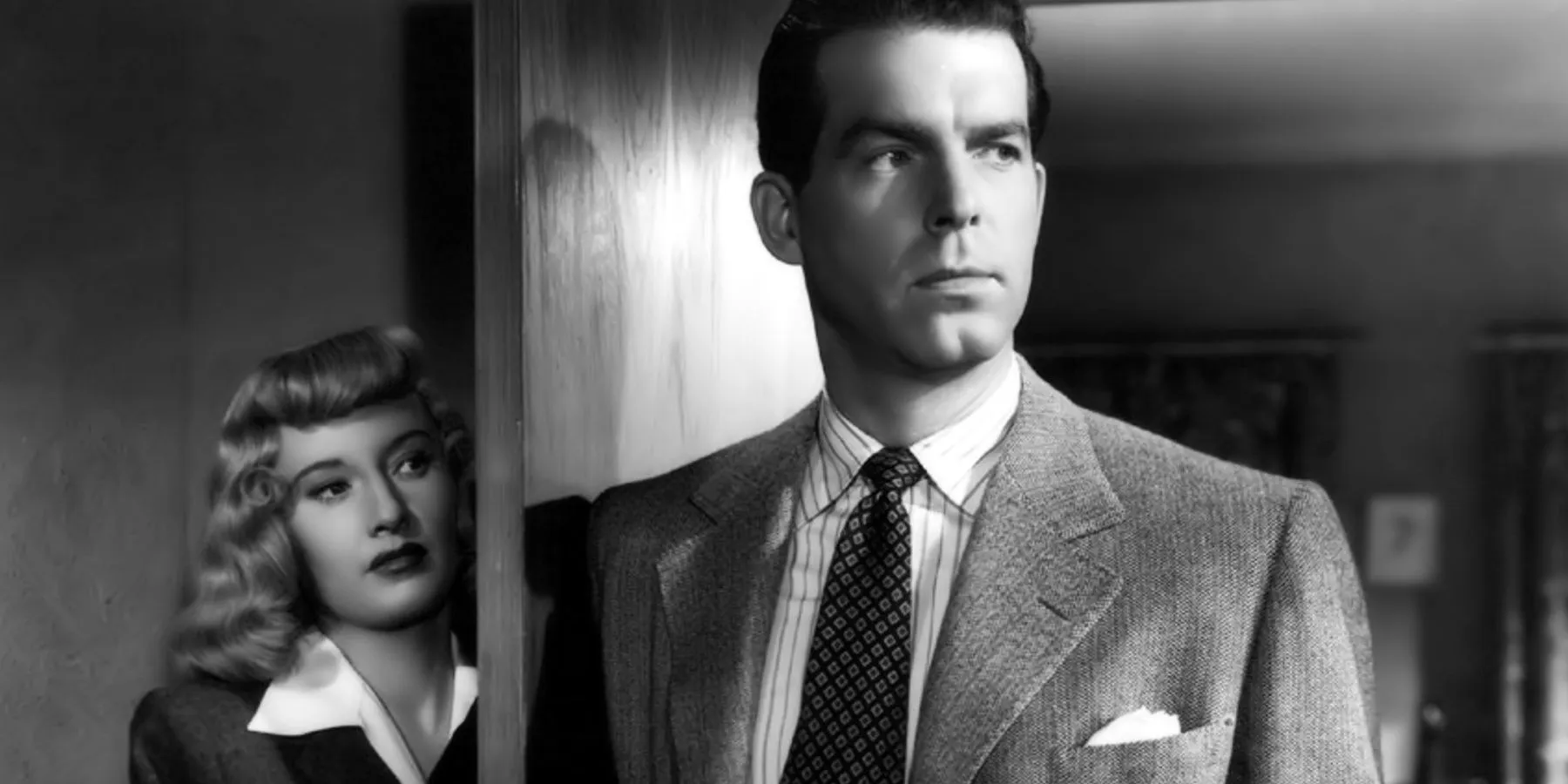
In the quintessential film noir Double Indemnity, we meet Phyllis Dietrichson (Barbara Stanwyck), the ultimate femme fatale who draws unsuspecting Walter Neff (Fred MacMurray) into her dangerous realm. Upon entering her home, Walter is instantly captivated by her charm and beauty, leading him down a perilous path.
Phyllis’s skill lies in her ability to remain untainted while enlisting others to perform her nefarious deeds. Walter, lured and seduced, ultimately becomes her pawn in a plot to murder her husband for an insurance payout. When the veil of deception is lifted, Walter realizes he has been ensnared, but it’s already too late for his escape.
1
Amy Dunne (Rosamund Pike) In Gone Girl
The Modern Femme Fatale Who Elicits “Good For Her!”Reactions
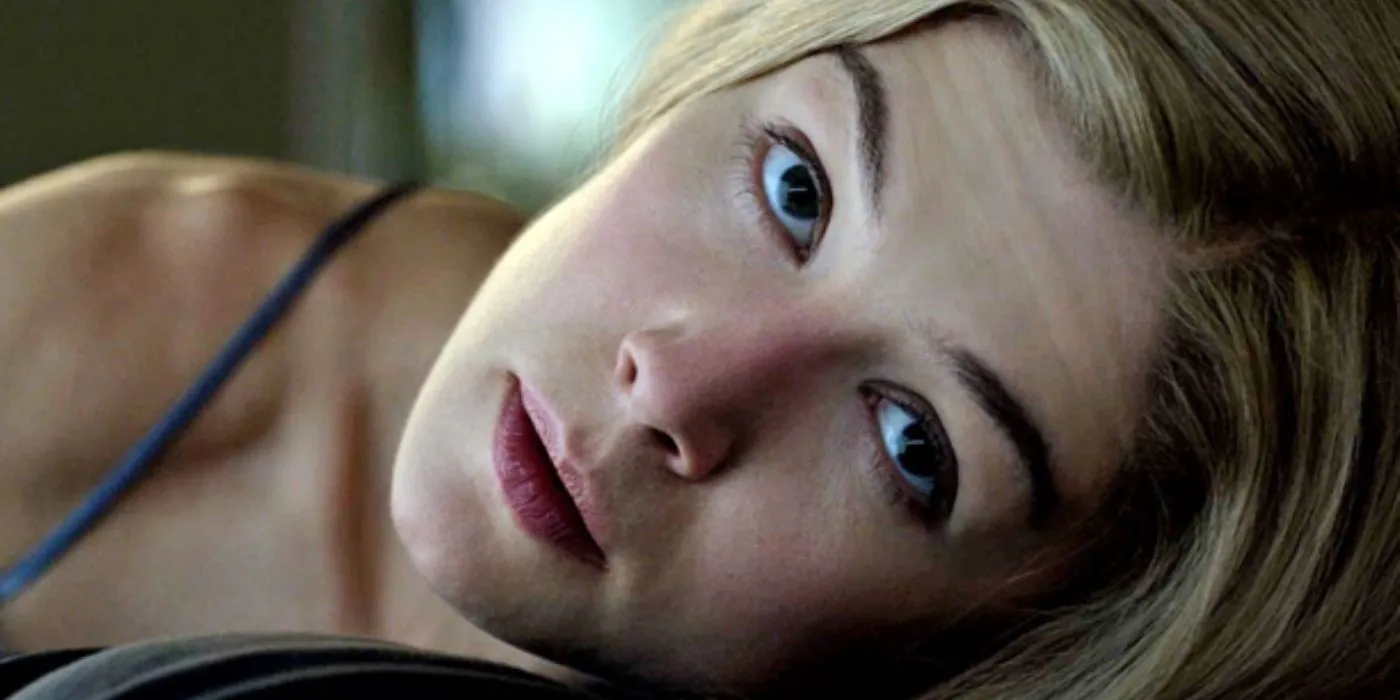
Adapted from Gillian Flynn’s bestselling novel, Gone Girl chronicles the complex story of Amy Dunne (Rosamund Pike) orchestrating her own disappearance on her fifth wedding anniversary to frame her husband, Nick Dunne (Ben Affleck), for her supposed murder. As the investigation unfolds, it becomes evident that Amy is a well-crafted modern femme fatale, manipulating media and perceptions to her advantage.
Amy’s calculated moves and psychopathic tendencies redefine what a femme fatale can be, showcasing her strategic intelligence and cruel charm. As details of her carefully constructed facade unravel, audiences find themselves simultaneously horrified and in awe of her cunning. Amy’s character challenges traditional notions of morality and agency, making her a thrilling figure in contemporary cinema.




Leave a Reply